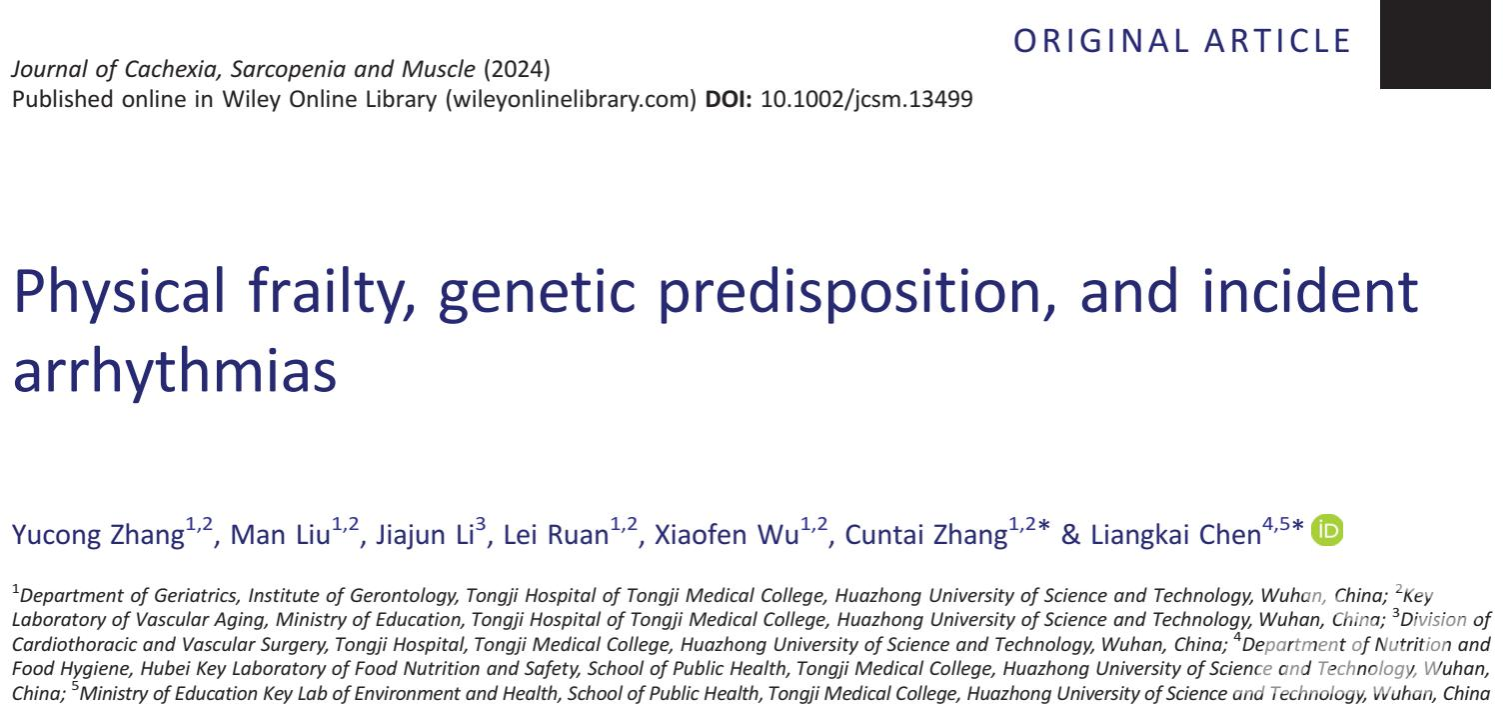A recent study led by Professor ZHANG Cuntai from the Department of Geriatrics at Tongji Hospital, Tongji Medical College, Huazhong University of Science and Technology (HUST), has revealed that proactive management of frailty can significantly reduce the risk of arrhythmias in older adults. The research utilized a prospective cohort from the UK Biobank, screening half a million community-dwelling individuals in the United Kingdom, and confirmed that actively managing frailty can effectively prevent arrhythmia issues in the elderly. This approach can also reduce the risk of severe complications, such as hypotension, thromboembolism, and shock, which can arise from poorly controlled arrhythmias, especially among high-risk groups with a genetic predisposition to atrial fibrillation.

The study's findings appeared in Cachexia, Sarcopenia and Muscle, a leading international journal in geriatric medicine. Dr. ZHANG Yucong and Dr. LIU Man from the Department of Geriatrics of Tongji Hospital are the co-leading authors of the paper, with Professor ZHANG Cuntai and Professor CHEN Liangkai from HUST's School of Public Health as the co-corresponding authors.
Frailty, a geriatric syndrome intimately associated with aging and metabolic diseases, can manifest as a decline in physical activity, reduced muscle strength, increased fatigue, or a decreased ability to recover from illness, indicating a state of physiological dysfunction and vulnerability across multiple organ systems. However, the connection between frailty and the risk of arrhythmia in middle-aged and older populations has not been fully understood.
The study revealed a significant and independent positive linear correlation between pre-frailty, frailty, and the risk of atrial fibrillation and other arrhythmias. Individuals in a pre-frailty or frailty state are more vulnerable to the risk of arrhythmias. Moreover, individuals with frailty and at high genetic risk for atrial fibrillation were 234% more susceptible to atrial fibrillation compared to their counterparts without frailty and at low genetic risk for atrial fibrillation. The study also exhibited that, compared to non-frail individuals, those in a pre-frailty or frailty state were more likely to be female and smokers. They also tended to have a higher body mass index (BMI) and protracted sedentary mode of life.
Professor ZHANG Cuntai stated that this research laid a bedrock for incorporating the prevention and treatment of frailty as part of the primary prevention for arrhythmias. He suggests that the assessment and diagnosis of frailty, such as muscle strength testing and activity capacity evaluation, should be included in routine health checkups for the elderly and that more targeted intervention measures should be employed for individuals at an elevated genetic risk.
